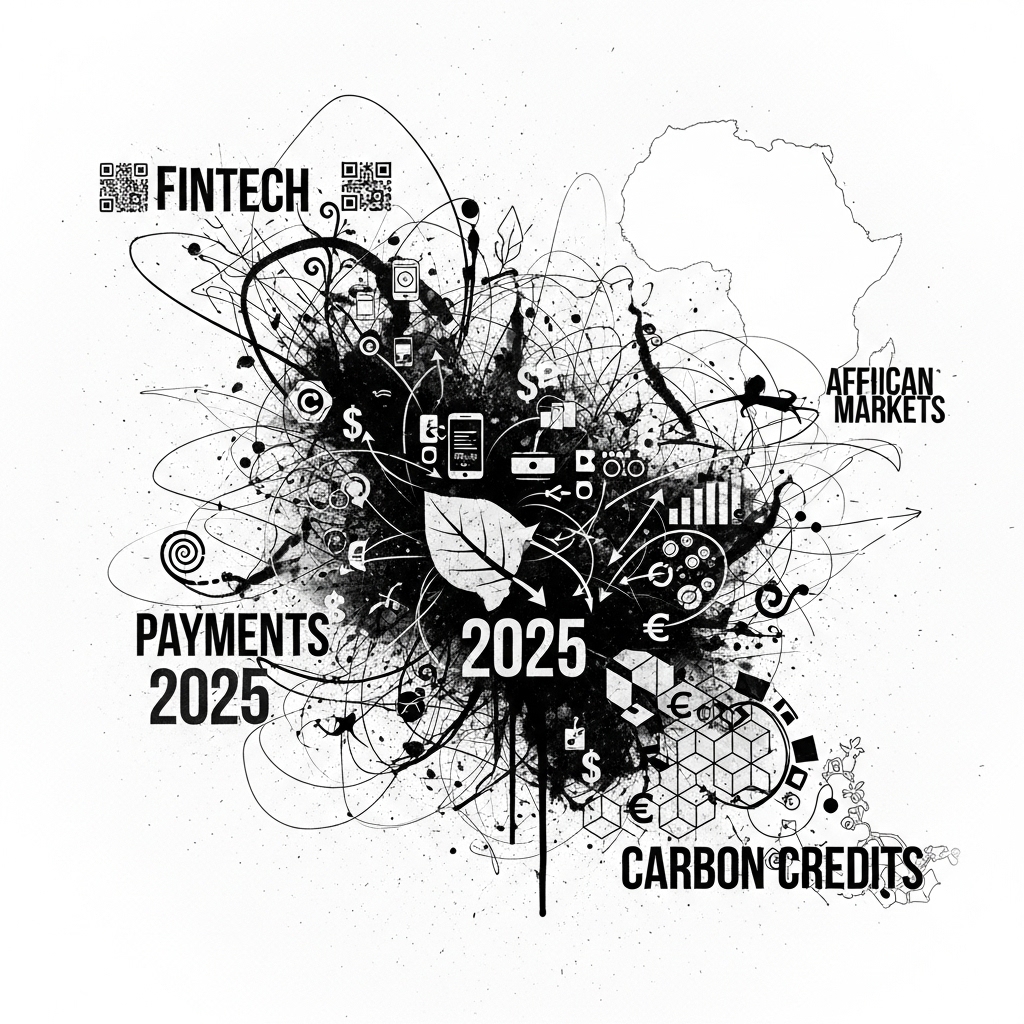Fintech and Carbon Credits: Africa’s 2025 Market Outlook

Introduction
As we move into 2025, the fintech and carbon credit sectors are undergoing transformative changes, particularly in Africa. With its rapidly evolving digital payments landscape and emerging carbon credit projects, Africa is poised to be at the forefront of sustainable finance. This article delves into the latest trends, market data, and innovations shaping fintech, payments, carbon credits, and ESG investments in Africa, with a spotlight on Botswana and Kenya.
Fintech and Payments: A Digital Revolution
Key Trends and Innovations
The global fintech industry is projected to grow at an impressive 15% annually from 2023 to 2028, outpacing traditional banks. In Africa, digital payments are leading this charge, with mobile money dominating the scene. M-Pesa in Kenya exemplifies this growth, serving over 60 million users and integrating with global payment networks like Visa and PayPal.
In 2025, real-time payments and AI-driven solutions are transforming transaction processing and fraud prevention. Innovations like embedded finance and regtech are becoming critical, especially as Africa builds interoperable payment systems to support cross-border trade and financial inclusion.
Regional Developments in Botswana and Kenya
Botswana is positioning itself as a fintech hub, piloting open banking and digital KYC. Meanwhile, Kenya continues to lead with M-Pesa, expanding into micro-lending and insurance. These developments underscore Africa’s mobile-first approach, leapfrogging legacy systems for faster, more inclusive financial services.
Carbon Credits and ESG: Paving the Path to Sustainability
Market Dynamics and Growth
The carbon credit market is set to surpass $3 billion in traded value by 2025, driven by corporate net-zero commitments and regulatory tightening. Africa, hosting over 30% of global voluntary carbon projects, is a significant player. Kenya, Ghana, and South Africa lead the charge, with Botswana emerging in nature-based credits.
Fintech’s Role in Carbon Credit Trading
Blockchain-based platforms are revolutionizing carbon credit trading in Africa. Innovations such as digital MRV tools and mobile-first trading platforms are enhancing transparency and accessibility. Platforms like AirCarbon Exchange are expanding in Africa, integrating carbon offset payments into mobile wallets, thereby democratizing access to climate finance.
ESG Investing in African Markets
Sustainable Finance Initiatives
Global ESG assets are projected to exceed $50 trillion by 2025, with Africa actively participating. Botswana’s Green Finance Taxonomy and ESG guidelines, alongside Kenya’s Nairobi Securities Exchange ESG segment, highlight regional efforts to integrate sustainability into finance.
Regional Focus: Botswana and Kenya
Botswana is launching initiatives like the National Financial Inclusion Roadmap, aiming for 90% inclusion by 2026. Kenya continues to excel with over 80% financial inclusion, driven by mobile money and digital credit innovations. These efforts are critical in harnessing fintech to achieve sustainable development goals.
Conclusion and Future Outlook
As Africa continues to innovate in fintech and carbon credits, the continent is not only adapting to global trends but also setting new standards for sustainable finance. The integration of digital payments and carbon offset solutions presents a unique opportunity for economic growth and environmental stewardship. Stakeholders should leverage these trends to drive inclusive and sustainable development across the region.


